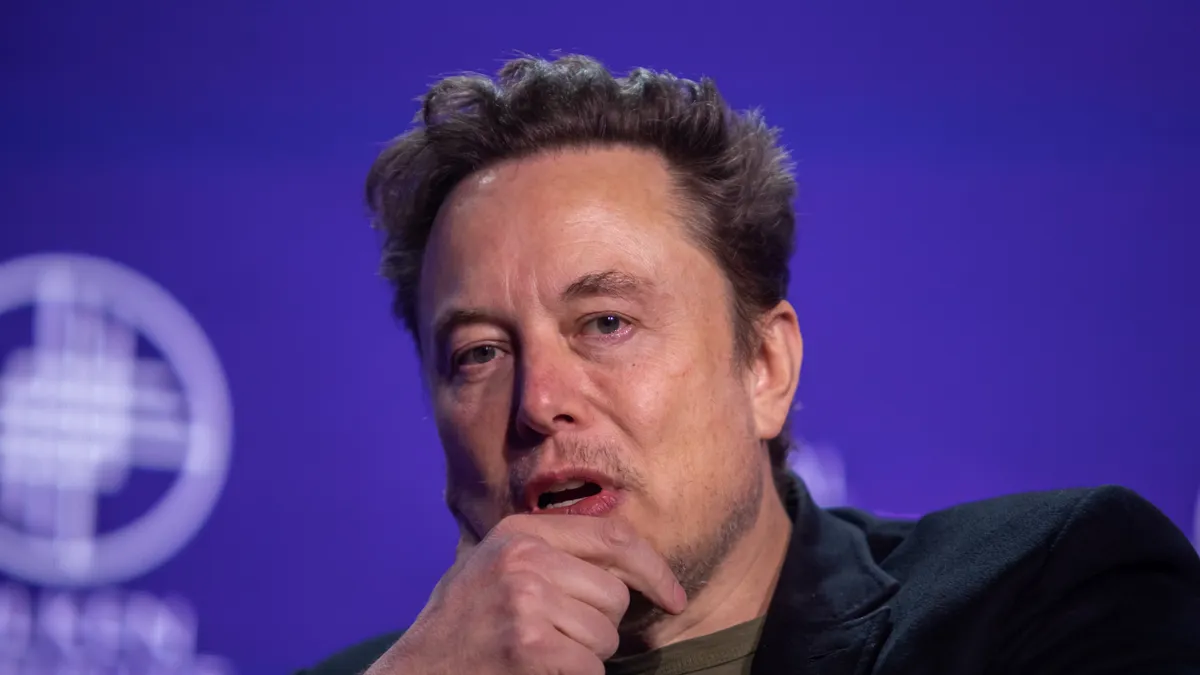Dive Brief:
- After winning a shareholder vote on June 13, Tesla wants a Delaware Chancery Court to reconsider her prior ruling that quashed a record pay package for Chief Executive Elon Musk worth tens of billions of dollars. Chancellor Kathaleen McCormick ruled in January that Tesla directors had not acted in shareholders’ interest in 2018 when the board approved $56 billion compensation for Musk.
- Tesla shareholders have now twice voted to award Musk the massive package, and the company is hoping the second vote will influence McCormck’s position on the case. Tesla valued Musk’s pay package at $44.9 billion in its April proxy filing, owing to a 24% decline in Tesla’s stock price over the past year.
- The losing party is nearly certain to appeal to the Delaware Supreme Court, regardless of whether McCormick alters her prior ruling.
Dive Insight:
A week after the shareholder vote, Tesla asked the Court of Chancery for an expedited briefing schedule to consider the vote’s impact, arguing that 72% of stockholders supported paying Musk the large compensation deal.
“Defendants contend that the consequences of the Ratification alter the course of this litigation and any relief that is potentially available (and relatedly, any attorneys’ fees that may be awarded to Plaintiff’s Counsel), and thus cannot be ignored in an action that is supposed to advance the bests interests of the Company,” Tesla’s lawyers wrote.
The electric automaker still faces a daunting task in court as it seeks to award Musk the huge windfall. The shareholder vote doesn’t directly affect McCormick’s decision, which deemed the pay package improper on substantive grounds and not for technical reasons, Legal Dive reported in April.
A group of Tesla shareholders, led by Richard Tornetta, a drummer for a Philadelphia-based heavy metal band, sued in 2019, saying that Tesla’s board was conflicted and effectively controlled by Musk when it came to designing the CEO’s compensation.
Tesla’s second shareholder vote “is a transparent attempt to score a public relations victory, pressure the Court, and delay proceedings in this Action — perhaps so Defendants can deploy additional gambits that will needlessly complicate matters and consume further precious judicial resources,” the plaintiffs wrote Friday in a brief opposing Tesla’s request for an expedited hearing in light of the second vote.
McCormick has set a hearing for July 8, with legal matters, including the appropriate level of fees for the shareholders’ attorneys, led by Bernstein Litowitz Berger & Grossman LLP.
The new shareholder approval may help the company’s position more on appeal than with the judge who has already weighed the merits of the case.
Charles Elson, a retired University of Delaware law professor and founding director of the university’s John L. Weinberg Center for Corporate Governance, told Legal Dive he doesn’t expect that McCormick will reverse or soften her previous ruling, which she published in April.
“They’re going to try arguing that (shareholder) ratification cleansed the transaction,” said Elson, a noted critic of Musk’s pay deal. The judge “found that it was a gift and added no incentive value” to Musk as an executive, he said.
In May, Elson said Tesla had threatened to end its relationship with Holland & Knight, where Elson worked as a consultant, if he filed a brief to the court opposing Musk’s large payout. Elson said he resigned from the firm as a result of that incident.
Tesla did not respond to a message seeking comment on the case.
Tesla also sought, and received, shareholder permission to move its legal home from Delaware to Texas, where the company is based. The Austin-based company said June 13 it has completed the filing process to become incorporated in Texas.











